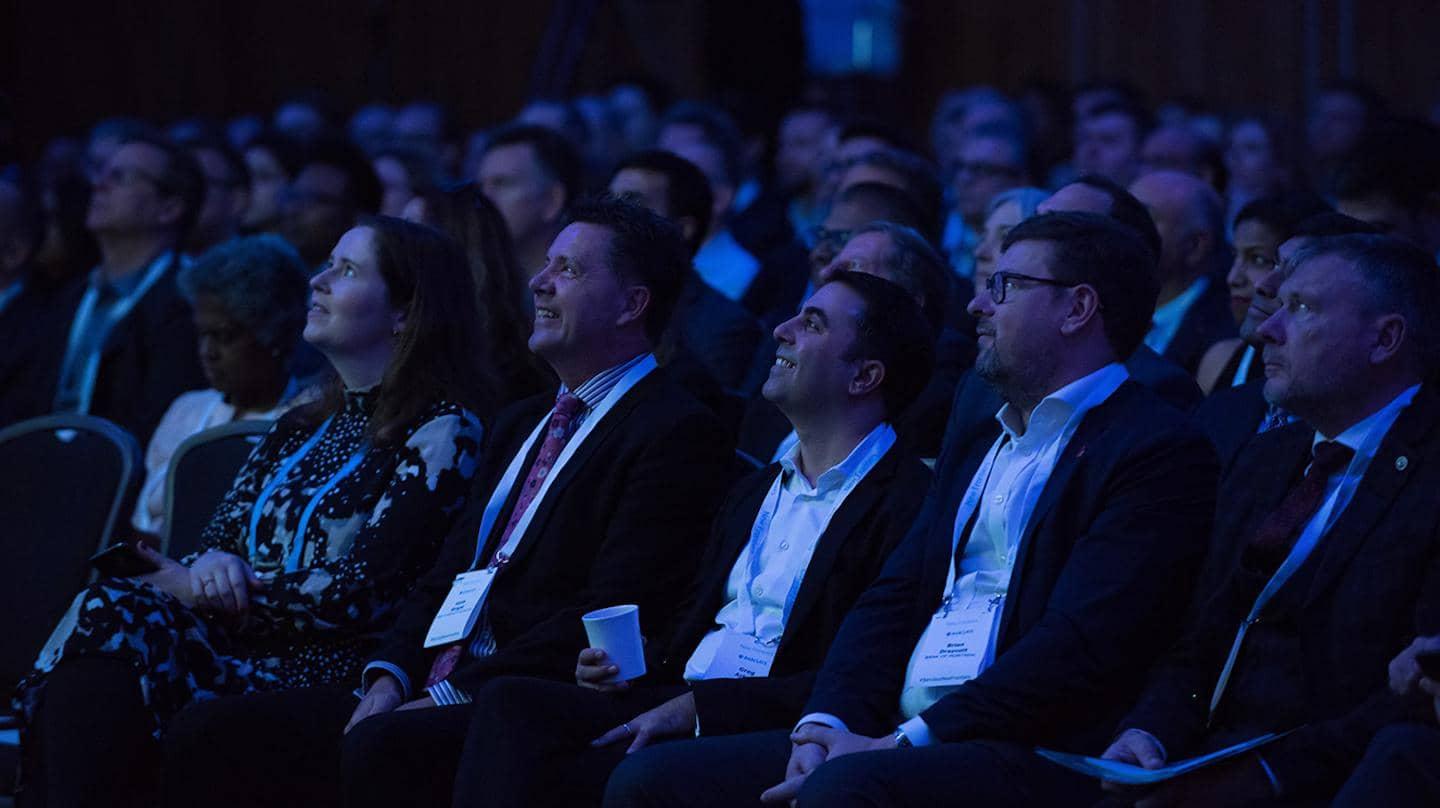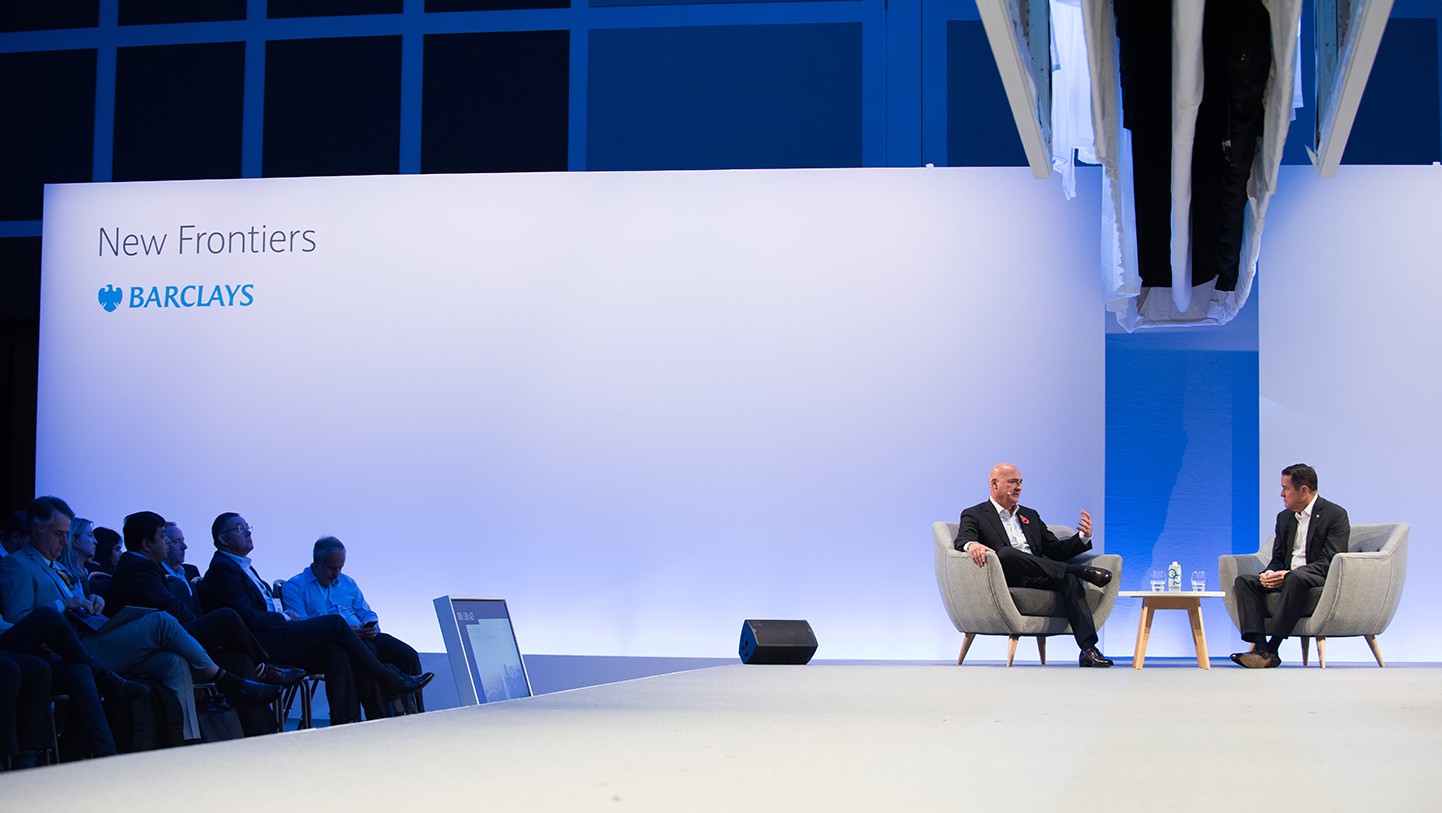
innovation
“In a digital world, it’s still all about the people”
It was standing room only as Barclays’ Group Chief of Staff, Sasha Wiggins, introduced the Barclays New Frontiers 2019 conference, diving into myriad debates about technology’s transformation of lives, societies, industries and markets.
On the tip of the Greenwich peninsula by the River Thames in London, leading figures from business, technology, research and finance joined enterprising fresh faces at Barclays’ New Frontiers conference to explore how technology can be used to improve lives, industry and society.
A record 800 delegates filled the conference space for the tech thought festival, engaging in a day of often spirited debate from podium and audience on themes from financial data, payments and the workplace of the future to the application of tech in health, law, education and agriculture.
Here are our key highlights from the day:
1. Some say data is the new oil. So said Mike Smith, Chief Product and Technology Officer at Barclays Ventures, but he had a different comparison: “Data is incredibly powerful and if you bring too much of it together with no controls, it’s incredibly damaging. So in that way I’d call it the new uranium.” The value, definition, use, misuse, security and regulation of data provided a linking theme for many of the panels.

Sasha Wiggins, Barclays Group Chief of Staff
2. It’s about society. Nigel Higgins, Chairman, Barclays Group, said: “I love the fact the decision was made to make this conference about technology and society. There’s an extraordinary depth of belief in the organisation that we can be much broader than a profit-making engine in finance. New Frontiers is part of the role that we think the bank has in society.” Barclays Group CEO Jes Staley built on this in a conversation with Keith Block, co-CEO of tech giant Salesforce, arguing that a public and private sector “handshake” was needed to ensure the tech revolution truly advances society
3. “Technology is not coming after people’s jobs”, according to Elizabeth van den Berg, Vice President, Insight Partners: “It’s coming after the bad bits of people’s jobs – (like) having to sift through hundreds of thousands of documents. That should be embraced.” This was reinforced by Ashok Vaswani, Barclays’ Global Head of Consumer and Payments, who said: “In a digital world, it’s still all about the people. The largest part of the journey is shifting an organisation’s mindset.”
4. Funders are the best customers. Matt Cooper, Chief Commercial Officer of investment crowdfunding platform Crowdcube, said: “500 people who love you as a company is more important than 5,000 who simply have transactional relationships. Brands don’t always need us for capital, they need us for community building.”
5. Share space, share ideas. The trend for collaborative co-working spaces like Barclays’ national network of Eagle Labs is “great because of peer learning”, said Sherry Coutu, Founder of Founders4Schools. “In some ways that’s more important than the real estate.”
6. Partnering is crucial. Responding to Staley’s assertion that “Barclays is in a race to digitise finance, but we also have a bank to run, so we need to partner”, Block said that as tech companies move into financial services, they will be looking for partners that align with their values – which revolve around trust. “If you don’t have that, you’re out of business,” said Block. Barclays Group Chairman Nigel Higgins reinforced this message, describing collaborations like Barclays Ventures and Eagle Labs as “existential for an organisation that is very old but also plans to be at the cutting edge of technology in finance and beyond”.
7. The power of why. In a keynote closing speech, fintech investor Eileen Burbidge of Passion Capital said that “innovation and technology are allowing a level of transparency customers have never grappled with before”. Burbidge said this is leading to sustainability, citizenship, and diversity and inclusion being non-negotiables for the next generation, meaning corporates must react and “take political viewpoints on social issues”. Panellists suggested this will be necessitated by bottom-line as well as ethical concerns. “I think this generation is raised with a great understanding of ethics,” said Block. “They always ask ‘why?’”

Jes Staley, Barclays Group CEO
8. Don’t let the tail wag the dog. In an afternoon discussion about skills, education and employment in the fourth industrial revolution, Matthew Taylor, Chief Executive of the RSA, said that ‘How do we adapt to technology?’ is the wrong question. “How much lack of agency does that imply?” he said. “The question is, ‘How do we use technology to make our lives better?’.” Taylor added that in finding those answers and tackling the ethical issues around data and AI, “life skills and soft skills are important, and Barclays does tremendous work in that area”.